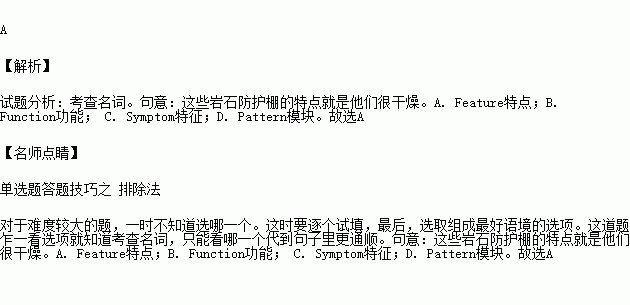题目内容
A unique ______ of these rock shelters was that they were dry.
A. feature B. function C. symptom D. Pattern
 春雨教育同步作文系列答案
春雨教育同步作文系列答案短文改错
下面短文中有10处语言错误。请在有错误的地方增加、删除或修改某个单词。
增加:在缺词处加一个漏字符号(∧),并在其下面写上该加的词。
删除:把多余的词用斜线(\)划掉。
修改:在错的词下划一横线,并在该词下面写上修改后的词。
注意:1. 每处错误及其修改均仅限一词;
2. 只允许修改10处,多者(从第11处起)不计分。
例如: It was very nice to get your invitation to spend ∧ weekend with you. Luckily the I was completely free then, so I’ll to say “yes”. I’ll arrive in Bristol at around 8:00 p.m. am in Friday evening. on |
Bailey is an only child, and first boy born into a family that was accustomed to raise girls. He has grandparents who love to buy his “boy” toys and spoil him like crazy. Bailey is fortunate enough to have multiple gaming system and more toy cars than someone he knows. He has always been kind-hearted and generously with older kids and has never had a problem inviting them to join his fun. However, when it came to younger kids, he falls short. He get easily frustrated when they play with his favorite toy cars or fail to understanding how to play his video games with.

